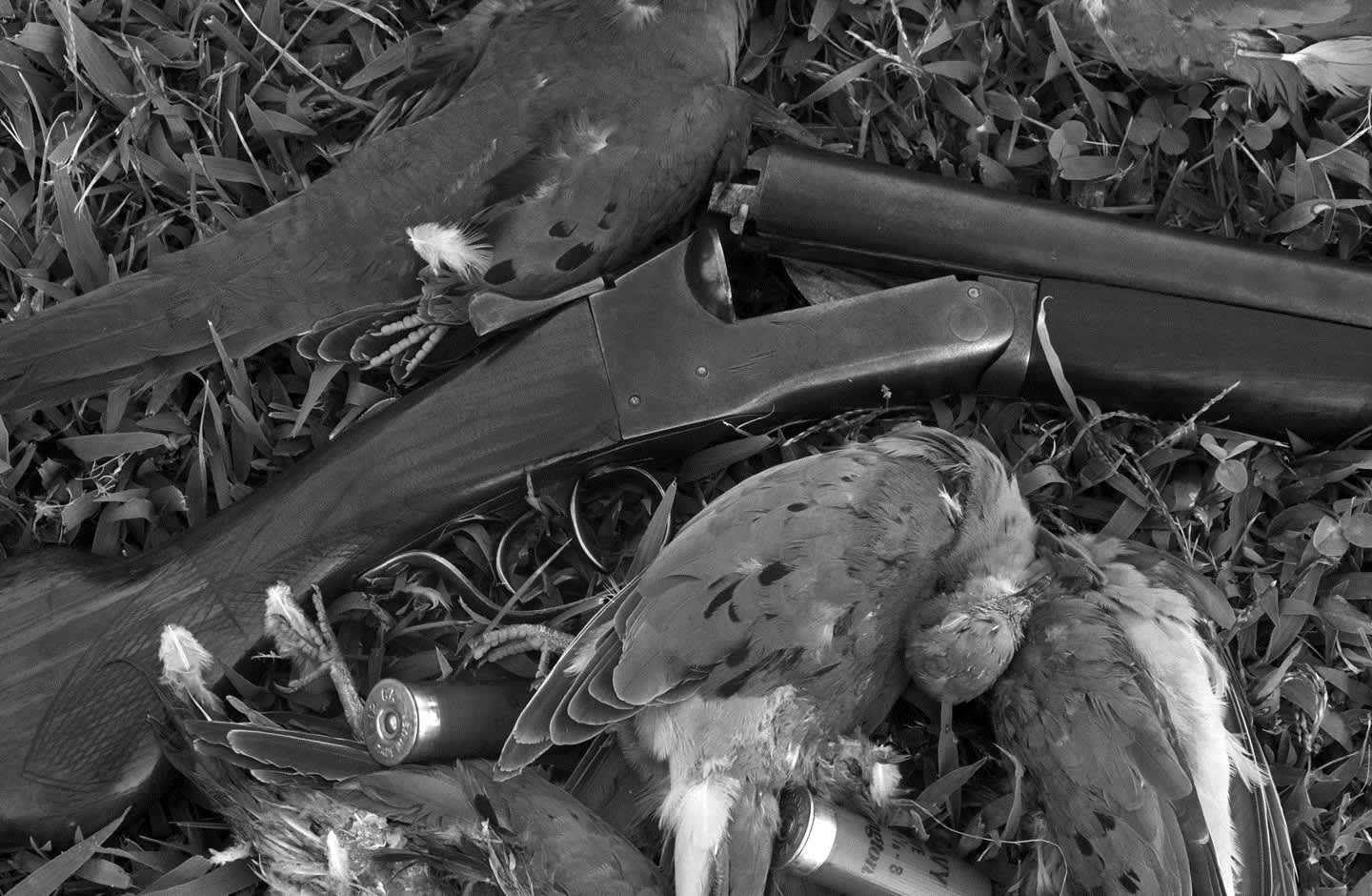A Shotgun and a Promise: The Story of My Grandpa’s Ithaca
Josh Wolfe 12.04.14

Grandpa was a funny man. He was a small man, tough and wiry with quizzical eyes. He never really said too much until his final days, and hell, even then his sentences were short, exact, and to the point. But I’ll never forget the light in Grandpa’s eyes when he talked about the days after the Korean War had ended, and how he came to own an Ithaca shotgun that has since become my own.
He’d been fighting somewhere around the 38th parallel. Like some soldiers who didn’t have anyone waiting back home, he stuck around for a bit, mainly drifting through the streets of Seoul and partaking in what debauchery came his way. He tattooed both of his forearms—the left with a heart with a dagger through it and the right with a half-naked, dancing lady. “It’s one of my many regrets,” was his only explanation. As a young boy I was fascinated, and as I’ve grown older, I wish I would have pressed him harder on what he felt before walking into the parlor. Truth is, and as I’ve said before, Grandpa was really my step-grandfather, not meeting or marrying my Mimi—my mom’s mom—until some years after returning home from the war.
Grandpa never could pass up a drink or a card game. I can vividly remember him teaching me to play poker when I was short of 10 years old, and how when he took my week’s allowance I couldn’t quite understand why his breath smelled so funny as he laughed and scooped up the pile of crumpled one-dollar bills. He pocketed the cash, excused himself from the house, saying he’d be right back, and didn’t return until the next morning. It was the same in Seoul.
I’m not sure if he had friends over there or if it was just a general camaraderie among fellow Americans. He’d been playing poker, always seven-card stud. “None of the card-swapping crap,” he’d once told me. “It’s about the luck of the draw, boy.”
On certain nights you’re just on, and it was such an occasion for Grandpa on an evening when his cards were hot, and I almost guffawed when he told me the whiskey and women were too. There was a fella named Charlie from somewhere around Shreveport, Louisiana, sitting next to Grandpa who couldn’t buy a winning hand, and when his cash was gone, he had but two things to offer: a shotgun and a promise.
I’m surprised Grandpa took the bet and allowed some stranger to buy back into the game on that peculiar form of currency, being the stout conservative he was, but he took Charlie’s word and dealt the next hand, the one that would ultimately leave Charlie’s mark on my family between then and the generations to come. Before leaving the table, Charlie took down the address of Grandpa’s people back around Spokane, Washington, where he’d be returning to work on the family farm. And then he was gone.
Some years went by. Grandpa eventually found his way home where he labored on the farm, picking apples, harvesting row crops or hauling hay, whatever needed to be done. He worked from can’t see to can’t see and spent his nights drinking, cleansing his mind of everything from the war, including the shotgun and the promise. Whenever he thought of the inhumanities he witnessed in Korea and the realities of war, the bottle was his only liberation. At times he’d go days without eating if he smelled some small semblance even remotely close to the acridness of a dead body.
Some more years went by until he came home one evening to a long, slender package resting against his front door. The return address was Shreveport, Louisiana, and inside was the Ithaca side-by-side shotgun that Grandpa had won on the other side of the world—two triggers, 16 gauge, made in 1924.
At this point in his story, he stopped and stared out the window. I couldn’t really tell if Grandpa was surprised that Charlie had made good on his bet or if he was just suppressing his emotions as usual. Me, I was dumbfounded, shocked that a man would honor such a thing that simply could have been lost in time and memory. Despite the atrocities of war and the hardships of coming home, Charlie had made good on his word.
But then again, that was when America was America.

